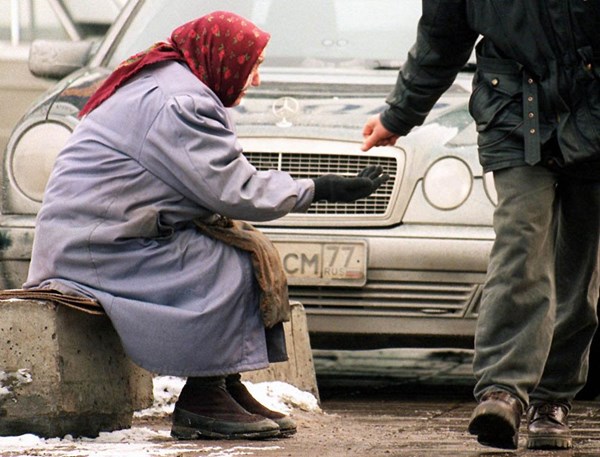Confidence of Russians in a better future reaches all time low
The pension reform, the depreciation of the ruble, the endless sanction conflict with the West and the government’s plans to raise taxes after a record drop in the population’s real income – all of these factors have undermined Russians’ faith in the country’s prospects.
At the end of the second quarter, 50% of Russians thought that the country’s worst times were yet to come, according to a report on social well-being by the National Research University Higher School of Economics (HSE).
In all of Russia’s modern history, the sociologists have only identified more pessimism in the country in the winter of 2016, when the ruble fell to 86 to the US dollar, and in the first half of the 1990s.
In 1996 and 1994, 52% of Russians expected the situation to deteriorate, and between 1991 and 1994, a pessimistic view was expressed as much as 60%.
In half a year, the number of pessimists has grown by nearly half: in winter, only 37% expected a deterioration of the economic situation, and in 2017 the figure ranged between 38-44%.
At the same time, the number of people who believe that the economic crisis has been overcome has also fallen sharply: whereas in January 32% of Russians responded that “the worst times are behind us”, by summer this figure had fallen to 23%.
The composite index of social optimism dropped from -23 at the start of the year to -38 in April, and by the end of the second quarter had fallen to -43, a two-year low. Optimistic inclinations have not declined so quickly since 2014.
“Several developments determined the negative dynamics of social attitudes in 2018. Firstly, the population’s opinion was affected by the Russian government announcing unpopular reforms: the raising of taxes, changing pension conditions. Furthermore, at the start of summer, citizens encountered a spike in prices, which, against the backdrop of low inflation rates in recent times, was extremely severe,” experts from the HSE observe.
All of this adds to the otherwise serious income crisis: although according to official statistics, real salaries went up by 2%, which is more than the figure for 2014, the population’s real earnings remain 10.1% lower than the period before the crisis.
The sharp decline in earnings is affecting business owners and the recipients of social benefits.
The proportion of revenue coming from entrepreneurial activity was 7.1%, which is one of the lowest values for this indicator, the HSE notes. In real terms, pensions are falling 7.5% short of 2014 levels, due to the government’s refusal to index payments to working pensioners, who account for roughly 25% of pensioners in the country.
The proportion of Russians who assess their own financial standing as “bad or very bad” has nevertheless gone down slightly, from 25% at the start of the year to 23% in the middle.
However, this could be the result of “revision of consumer preferences and living standards,” the HSE believes: under the new economic conditions, the population may consider some of the previous income “surplus”.
“The spike in prices and the government’s unpopular plans to reform the economy, which took place at the end of spring and start of summer 2018, have weakened Russians’ optimism, which was starting to grow due to the increase in earnings in the pre-election period,” the report authors conclude.
